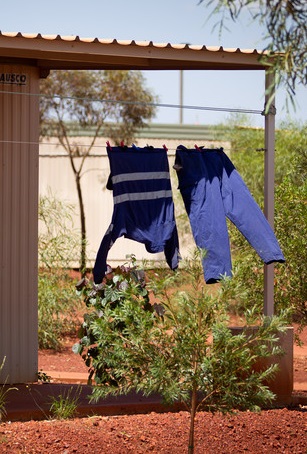Rio's robots drive tension, save money
 Mining giant Rio Tinto is helping usher in the robot revolution, with its plan to replace some of the world’s highest-paid train drivers with robotic equivalents.
Mining giant Rio Tinto is helping usher in the robot revolution, with its plan to replace some of the world’s highest-paid train drivers with robotic equivalents.
There are around 400 train drivers crossing parts of the Pilbara region at the moment, some paid in the neighbourhood of $240,000 for their efforts transporting iron ore, earning their slice of the $145 billion-a-year global trade.
This may not be the case for long, though.
“All producers are chasing better margins and stronger returns,” said Chris Drew, an analyst in Sydney with Royal Bank of Canada.
“Rio is ahead of the competition in terms of automation of trucks and trains,” he said in an interview after touring its ore operations in the arid, home to Western Australia’s biggest deposits for export.
With prices tending toward the precarious in several commodities markets, Rio are looking to save money and buy into the reliability of machines, by hiring automated operators.
Rio is planning and automated rail which will have 1,500 kilometres of track, 10,000 wagons and individual train running 2.3 kilometres long, according to Credit Suisse Group AG. The company will spend over half a billion dollars on the project it hopes to have operating by 2015.
The central hub of Rio’s automated operations looks a lot like the control panel of some futuristic battleship. The company’s rail, port and truck movements are all watched over from a control centre in Perth, with about 250 controllers working three shifts a day. Rail automation is part of the company’s push to improve productivity and safety and wring out extra capacity from existing assets through automation
The trains have on-board systems that check speed, signals and operate the brake, and a radio-based network communicates with the trains, combined with close-circuit television at every public level crossing.
Gary Wood, Western Australia district secretary for the Construction, Forestry, Mining and Energy Union says there will always be a need for the human touch.
“The position we’ve taken is that you’re never going to win the argument against technology,” Mr Wood says,
“We’re going to work to be involved the protection of as many jobs as possible as a result of any changes in technology.”







 Print
Print